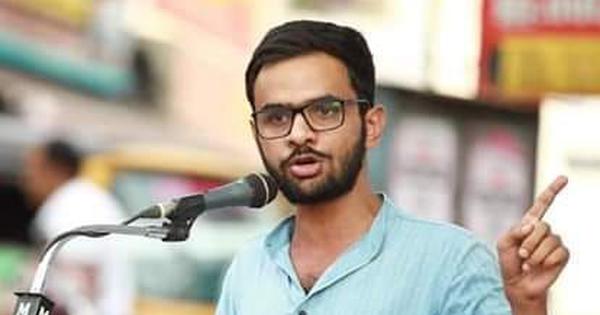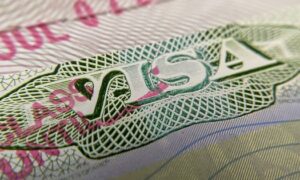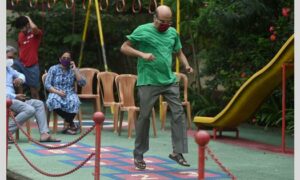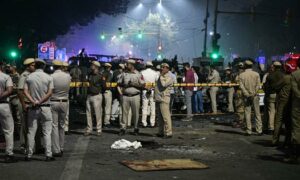
The Delhi Police on Monday told the Supreme Court that activist Umar Khalid, accused of being part of a “larger conspiracy” behind the 2020 Delhi riots, cannot demand the same treatment as co-accused Devangana Kalita, Natasha Narwal and Asif Iqbal Tanha because the High Court’s 2021 bail order in their favour was passed on an incorrect interpretation of the Unlawful Activities Prevention Act, Live Law reported.
Additional Solicitor General SV Raju said that in 2021, while granting bail to Kalita and others, the High Court had erred in holding that the Unlawful Activities Prevention Act applied only to offences concerning the “defence of India”, the legal news outlet reported.
This meant that the High Court had wrongly treated the statutory bar on bail in Section 43D(5) of the anti-terror law as inapplicable, Raju argued.
Section 43D(5) of the Act is intended to make it difficult for those accused of serious offences under the Act, particularly terrorism-related offences, to obtain bail. It bars a court from granting bail if there are “reasonable grounds” to believe the accusation against the persons is prima facie true.
Raju told the court that once the High Court concluded the Unlawful Activities Prevention Act did not apply, it incorrectly invoked Section 439 of the Criminal Procedure Code instead of Section 437, Live Law reported.
Section 437 CrPC governs bail in non-bailable offences as a magistrate considers them and contains specific restrictions when the offence carries death, life imprisonment or imprisonment of seven years or more, including tighter limits on granting bail where there are reasonable grounds to believe the accused is guilty.
Section 439 gives the High Court and the Sessions Court broader powers to grant bail, with fewer statutory bars than those that bind a magistrate.
The Bharatiya Nagarik Suraksha Sanhita replaced the 1973 Code of Criminal Procedure in July 2024.
Raju also argued that the Supreme Court did not cancel the bail of Kalita and the others because cancelling it needs stronger reasons than refusing bail in the first place, Live Law reported.
The additional solicitor general told a bench of Justices Aravind Kumar and NV Anjaria that Khalid cannot claim parity with the co-accused because “if bail is granted on a wrong interpretation of judgment or law, there is nothing like parity”, Live Law reported.
He also said that the Supreme Court itself had made it clear that the High Court’s bail order for Kalita and others could not be treated as a precedent, Bar and Bench reported.
Raju also pointed out that Khalid had raised the parity argument in earlier bail petitions, and the court had rejected it then as well.
He said the same argument cannot be brought up again unless there is a change in circumstances, Bar and Bench reported.
The case
Khalid and four others have challenged a judgement issued by the High Court on September 2, dismissing their bail applications.
Khalid, Sharjeel Imam, Gulshifa Fatima, Meeran Haider and Shifa Ur Rehma had been arrested between January and September 2020 in connection with the communal violence that broke out in North East Delhi in February 2020 between supporters of the contentious Citizenship Amendment Act and those opposing it. The violence had left 53 dead and hundreds injured. Most of those killed were Muslims.
Khalid, Imam, Fatima, Haider and Rehman were charged under the Unlawful Activities Prevention Act, the Prevention of Damage to Public Property Act, the Arms Act and sections of the Indian Penal Code.
On October 30, in an affidavit filed in the Supreme Court, the Delhi Police opposed their petitions, arguing that their alleged actions were part of a coordinated “regime change operation” carried out under the guise of civil dissent.
The police also alleged that Khalid was the chief conspirator behind the riots and had mentored Imam in planning the first phase of the violence.
Advocate Kapil Sibal, appearing for Khalid, had earlier told the Supreme Court that the prosecution was delaying the trial and placing the blame on Khalid.
Sibal had argued that no weapons or incriminating material had been recovered from Khalid, and that there was no evidence linking him to any act of violence.
He said the only allegation against Khalid was that he delivered a speech in Maharashtra on February 17, 2020. However, this speech invoked Gandhian principles of non-violence and cannot be regarded as “provocative” by any stretch, he had added.
Also read: Who has the right to protest in Modi’s India?
📰 Crime Today News is proudly sponsored by DRYFRUIT & CO – A Brand by eFabby Global LLC
Design & Developed by Yes Mom Hosting






